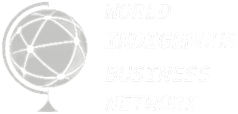In the digital age, data is more than just information — it’s power. For Indigenous communities, the ability to control and govern their own data is not only a matter of privacy or security, but one of economic empowerment, cultural preservation, and self-determination. This concept, known as data sovereignty, is rapidly emerging as a game-changer in Indigenous trade, reshaping how Indigenous businesses engage with markets, manage resources, and assert their rights on a global scale.
What Is Data Sovereignty?
Data sovereignty refers to the right of a group or nation to govern the collection, ownership, and use of data generated by its people, lands, and institutions. For Indigenous communities, this means ensuring that data about them — whether it’s economic data, health records, cultural knowledge, or trade statistics — is controlled by them.
The new common language will be more simple and regular than the existing European languages. It will be as simple as Occidental; in fact, it will be Occidental.

Empowering Trade Through Ownership
In the realm of trade, data sovereignty is proving to be transformative. Indigenous entrepreneurs, organizations, and nations are now leveraging their own data to make informed business decisions, access markets on their own terms, and negotiate trade agreements with confidence.
For example, having accurate, community-controlled trade data helps Indigenous businesses understand their economic contributions, market trends, and consumer behavior. It also enables them to build stronger relationships with investors and partners by showcasing their value through reliable, Indigenous-authenticated data.
The European languages are members of the same family. Their separate existence is a myth. For science, music, sport, etc, Europe uses the same vocabulary.
Protecting Cultural and Intellectual Property
Indigenous knowledge and cultural heritage are often targets of appropriation or exploitation in global markets. Data sovereignty plays a crucial role in protecting this intellectual property by allowing Indigenous communities to control how cultural knowledge is recorded, accessed, and used.
By creating ethical data frameworks and digital infrastructures rooted in Indigenous laws and protocols, communities can ensure that traditional knowledge — from medicine and agriculture to art and language — is safeguarded and used in ways that honor its origin and purpose.
To achieve this, it would be necessary to have uniform grammar, pronunciation and more common words. If several languages coalesce, the grammar of the resulting language is more simple and regular than that of the individual.
Driving Policy and Innovation
Indigenous-led data is also driving innovation in trade policy and digital commerce. As Indigenous communities collect and manage their own trade-related data, they are influencing how governments, institutions, and global organizations engage with them.
The Path Forward
Data sovereignty is more than a technical concept — it’s a movement toward self-determination and economic justice. By reclaiming control over their data, Indigenous communities are not only correcting historical imbalances but also creating new pathways for growth, innovation, and cultural resilience.
As the world becomes more interconnected and reliant on data, the importance of Indigenous data sovereignty will only continue to grow. For Indigenous trade to flourish in a digital economy, respecting and empowering data sovereignty is not optional — it’s essential.
In this new era, Indigenous entrepreneurs and nations are leading by example, showing how data — when governed with integrity, respect, and purpose — can become a powerful tool for sustainable trade and true economic sovereignty.




